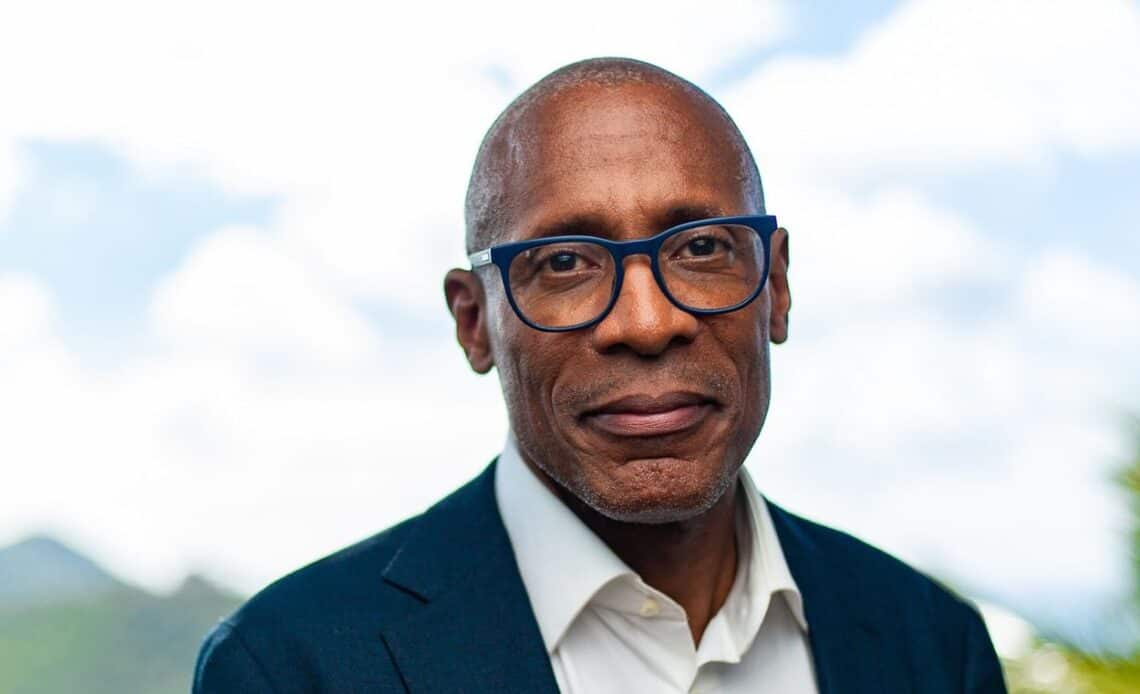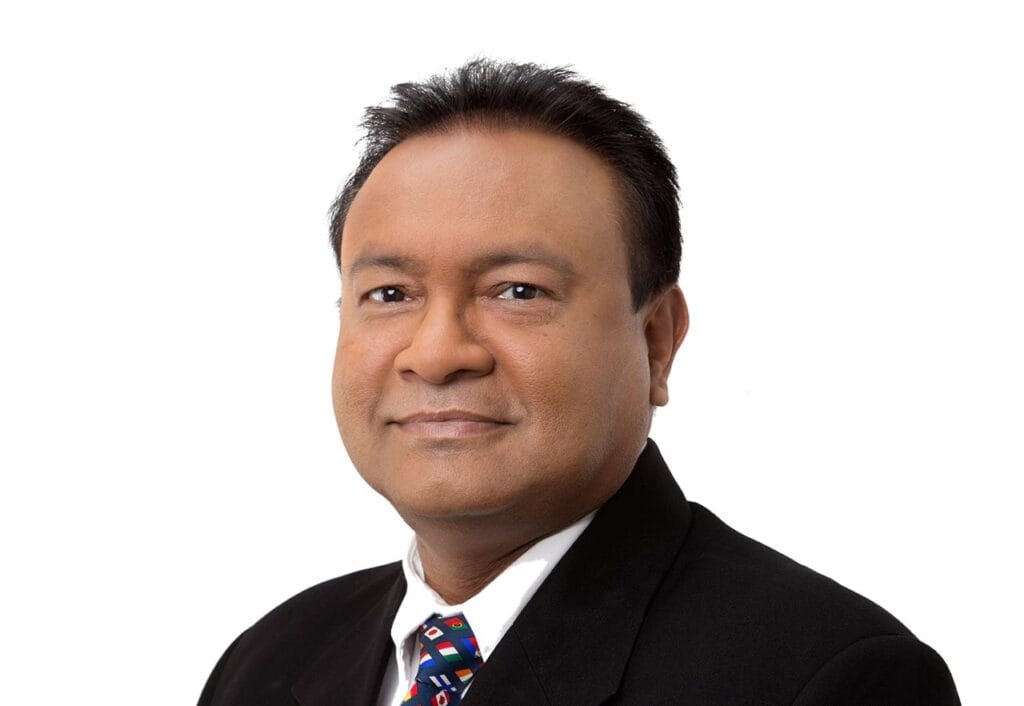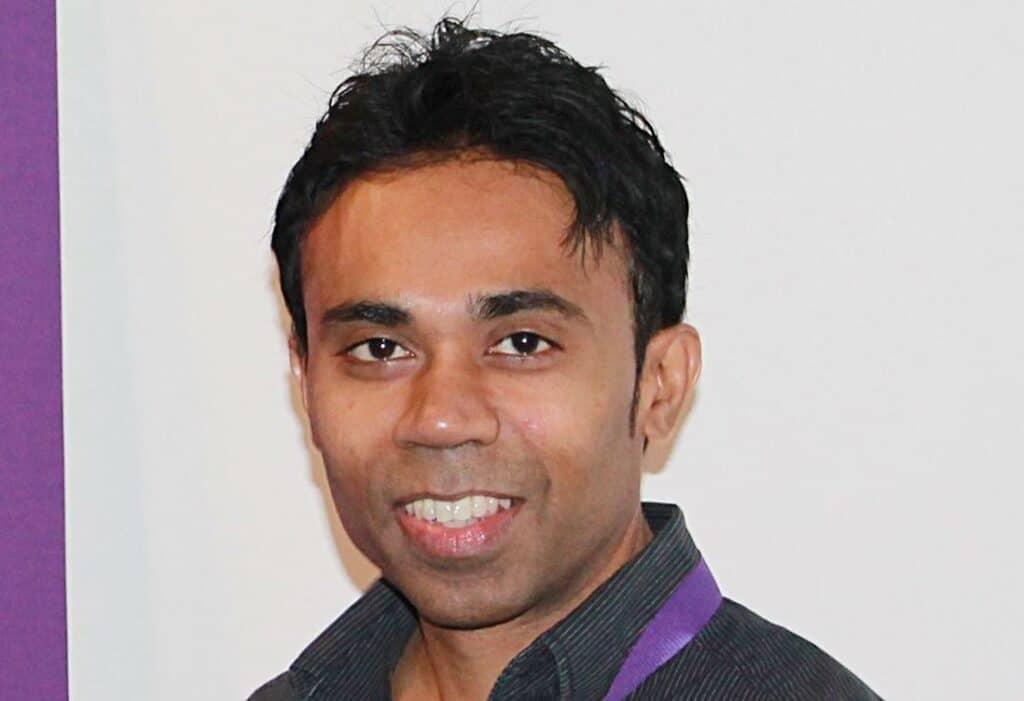
Above: Dr Keith Nurse. Photo by Kareem Stanley/MeerakulosArt
BitDepth#1391 for January 30, 2023
In her prerecorded feature address to the seventh TT Internet Governance Forum, Education Minister Nyan Gadsby-Dolly was soberly resolute, if irritatingly vague, in her commitment to bring the value of ICT to schools nationwide.
That wasn’t the case when panelists gathered in virtual conference to discuss Future-proofing ICT in Education, offering a spirited discourse on the issues and challenges that face the minister, along with the nation’s teachers and students, in any effort to modernise local education.
Commenting on the move to remote school in March 2020, Dev Gosine described the result as “a crazy, knee-jerk reaction.”
“We had teachers who basically said, I have a laptop. I have Word. I can teach online.”

“Were there any rules or directives given to educators when teaching went online?” Gosine asked, rhetorically.
It wasn’t as if there were no teachers available who had been trained in education technology.
Keith Laban, an ICT Educator with the Education Ministry was coaching teachers in techniques using computer technology and online tools for years before the pandemic. He proudly noted that his students were able to rally quickly and deliver effective teaching.
“Teachers who weren’t prepared were the ones who had the worst possible experience,” Laban said.
“We definitely need teacher education to implement project-based learning using ICT. Teachers will learn to use technology for their Diploma in Education, but then they can’t actually use the technologies in their schools.”
“I coach teachers in low-performing schools and I can say that no matter how good the training, if there is no electricity in the lab or there is no internet connection, there are limits on what can get done.”
“The real issues in a quality education are always the same,” said Pundit Shiva Maharaj, an Educational Technologist and founder of ICT Expertz who lectures in educational technology to candidates for the Master’s degree in education.
“There is a need for teachers to be more effectively trained in technologies that make their classes more engaging and relevant. There is a need to overhaul teacher education. The goal of education should be creating an environment for lifelong learning. We can’t blame infrastructure for everything. A well-trained educator will be able to use whatever resources they have to connect with students.”
“Learning software should be fun,” Laban said, “I’m not a fan of passive learning; we need to have more development of project and game-based learning.”
“We need to be looking at the broad range of technologies and how they apply to higher education institutions,” said Dr Keith Nurse, president of COSTAAT.
“Too much of our teaching happens between four walls or on screens when the learning process is accelerated by doing. People only learn around 30 per cent of what they hear in the classroom and learn as much as 80 per cent by doing.”
Noting that the biggest expense in education is human resources, Nurse also noted that it is the most necessary.
“The Caribbean is a major importer of education-related content from the first world, in Trinidad and Tobago alone, it’s close to $60 million. Can we use digital technologies to create indigenous and culturally relevant content for our schools and export it to other countries? I believe there is a niche that is available to us.”
Of primary importance, according to Dr Peter Smith, Chief Education Officer at the Ministry of Education, is bridging the digital divide with investment in infrastructure and resources to ensure that online tools are more widely available.
There is also need, he noted, to provide teachers with training and support both in their professional development and with suitable technology tools.
Some of that work is being undertaken by the Ministry of Digital Transformation, which is building capacity and working with institutions to improve their engagement according to Dr . Andrea Kanneh, Manager of the ministry’s Performance and Engagement Digital Skills Unit.
The Digital Transformation Ministry is engaged with training at YTEPP and in communities through its AccessTT ICT centres and is building a new Learning Management System that will feature content created by local teachers.
But after 30 months of online teaching, it isn’t clear what has been learned and what guiding principles have come out of that hard won experience.
“Much of what was offered during the pandemic was emergency online learning,” said Nurse.
“But our student base has come to appreciate the value of online education. They can learn whenever and wherever and can access the material according to their available time. What then is the sweet spot for online teaching and what is the sweet spot for face to face learning?”



